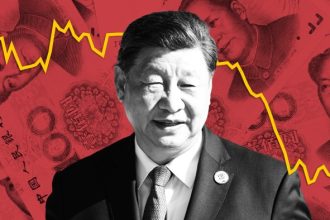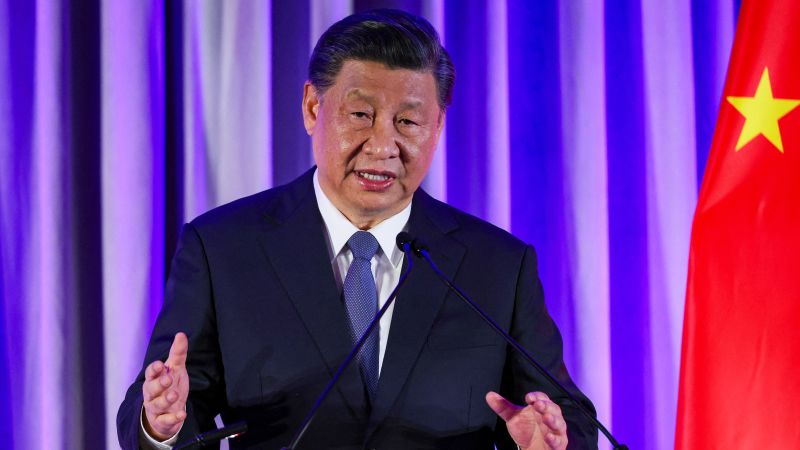Editor’s Note: Sign up for CNN’s Meanwhile in China newsletter which explores what you need to know about the country’s rise and how it impacts the world.
China is willing to be “a partner and a friend” of the United States, Chinese leader Xi Jinping told American business leaders in San Francisco on Wednesday, as he sought to court US businesses amid a decline in foreign investment in China.
Speaking at a dinner event on the sidelines of the Asia-Pacific Economic Cooperation (APEC) forum, Xi said the most fundamental question shaping US-China relations is whether they the countries are rivals or partners.
“If we regard each other as the biggest rival, the most significant geopolitical challenge and an ever-pressing threat, it will inevitably lead to wrong policies, wrong actions and wrong results,” Xi told an audience that included Apple CEO Tim Cook and Tesla founder Elon Musk.
“China is willing to be a partner and friend of the United States,” he added.
Xi delivered the remarks hours after he held extensive talks with US President Joe Biden, where the two leaders made positive steps in stabilizing rocky relations between the world’s top two economies.
Hosted by the US-China Business Council and the National Committee on US-China Relations, the evening offered Xi a chance to appeal directly to American executives, who have grown increasingly wary of China’s economic slowdown and Xi’s tightening grip on the economy, including a widening national security crackdown that has spooked foreign businesses.
In his speech, Xi struck a conciliatory tone, saying China and US should not engage in a zero-sun game, in which one wins at the expense of the other.
“China has never bet on the United States to lose, has never intervened in US internal affairs and does not intent to challenge or replace the US. China is happy to see a confident, open and prosperous US,” Xi said.
Similarly, he said, the US should “welcome a peaceful, stable and prosperous China.”
Xi emphasized the importance of people-to-people exchanges in fostering bilateral relations, invoking the “Flying Tigers” — a group of American pilots who helped China fight Japan during World War II — and his own stay with an American family in Iowa during his first trip to the US nearly four decades ago.
In an effort to foster personal ties between the two countries, China will invite 50,000 American youths to visit China for exchanges and studies over the next five years, Xi said.
Dexter Roberts, director of China affairs at the Mansfield Center at the University of Montana, said Xi’s overtly friendly tone was a reflection of China’s economic troubles.
China’s economy enjoyed a solid start to 2023 after emerging from three years of Covid restrictions, but the recovery fizzled out in the second quarter. It is now grappling with mounting challenges, ranging from weak consumer spending and a deepening property crisis to a slump in foreign investment.
Earlier this month, a gauge of foreign direct investment into China slipped into the red for the first time since 1998, underscoring the country’s failure to stem capital outflows.
“This isn’t a good time, given the state of the economy, to have hostile relations with American businesses and with the United States,” said Roberts. “When the economy goes south, top Chinese leaders start to say: ‘We want to work with foreign businesses and our own private companies.’ “
Liu Dongshu, an assistant professor focusing on Chinese politics at the City University of Hong Kong, said China needs to signal its “willingness to open” amid its economic woes.
“China wants to have a better diplomatic, international environment to boost (business) confidence,” Liu said.
“This is why China wants to shift its narrative a little bit and wants to be nicer and have a warmer tone and attitude, to signal that China is still a good place to invest,” he said.
While rising geopolitical tensions are partly to blame for the exodus, with the US imposing investment restrictions on China’s high-tech sector, foreign companies and investors have also grown wary of increasing risks within the country, including the possibility of raids and detentions.
Under Xi, China has further expanded the scope of its anti-espionage law, raided US consultancy and due-diligence firms and detained executives in the name of national security, sending a chill through the foreign business community.
Read the full article here





